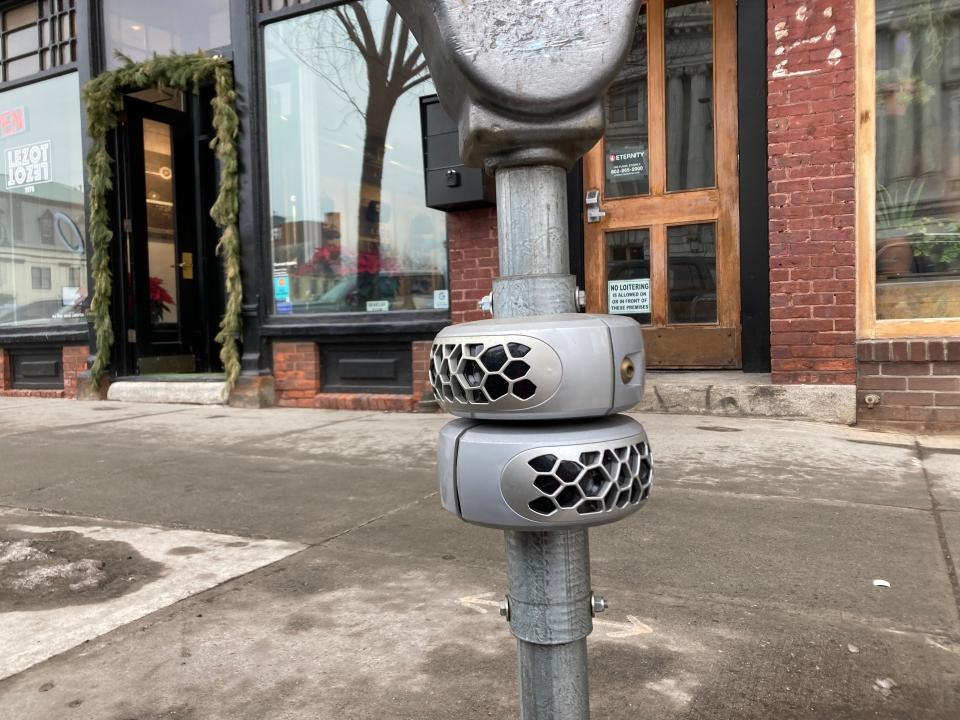Why Burlington has added sensors on some street parking meters
Burlington is looking to get more savvy about its parking inventory.
The city is trying out a new technology that tracks parking space occupancy at any given time. The parking department has 18 parking sensors on loan from ITS Group, its parking meter vendor, to track when vehicles leave and enter spaces.
The sensors are not cameras, said Jeff Padgett, director of parking and traffic.
Each sensor would cost the city $250. Padgett said the test period of the sensors will allow the city to see if they have enough reason to outfit all of Burlington's 330 smart meters with the sensors.
"We would have to justify that the data they're providing is actually useful data that will actually improve the parking experience," Padgett said.

The data could be useful in two different ways.
If the sensors are accurate enough to regularly inform city officials of sparking space occupancy, rates could be raised at times of year or days of the week when occupancy is higher. But the sensors could also be valuable to people looking for parking downtown.
"There's a persistent rumor that there is no parking in downtown Burlington, but the reality is that there may not be a space right in front of the business that you're looking to go to but there's parking right around the corner," Padgett said.
The sensors would ideally stop people from circling around downtown until they come upon a spot and instead lead them directly to an open spot.
Padgett said a couple towns in Massachusetts have already implemented parking sensors and big cities around the country are considering them.
The 18 test sensors are on Main Street, between Church Street and South Winooski Avenue. They are not yet functional due to some technical issues in starting the trial but when they do start working, the city will have a three-month period to collect data. The city will look at how sensors react to things like snow plows, smaller vehicles like motorcycles and other possible complications.
After that, Padgett said the city will evaluate whether they'd like to negotiate an extension to collect more data or make a decision.
More: Finding a parking spot in Burlington just got easier with app-driven map
Contact Urban Change Reporter Lilly St. Angelo at lstangelo@gannett.com. Follow her on Twitter: @lilly_st_ang
This article originally appeared on Burlington Free Press: Burlington parking: City tests parking meter sensors

